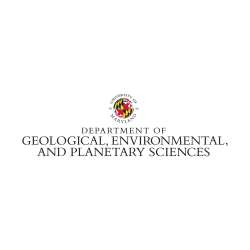Advancing Climate Resilience in Maryland
UMD researchers team up with other Maryland stakeholders to address climate and weather-related vulnerabilities in communities across the state.
As average global temperatures rise and extreme weather events become more commonplace, the world faces a potential future of fire, flood and famine—and Maryland is no exception.
Just a few years ago, intense heat waves besieged Baltimore and sudden floodwaters crashed through homes and businesses in Ellicott City. Incidents like these continue to occur in all parts of the state, resulting in loss of lives and property.

On January 5, 2024, a multidisciplinary team of University of Maryland researchers hosted an open forum and workshop at the university’s Earth System Science Interdisciplinary Center (ESSIC) to discuss the realities of climate change in Maryland communities with local stakeholders from government, academia and community groups. Part of a UMD Grand Challenges initiative called “Addressing Climate Change for a Sustainable Earth,” the event was attended by representatives from the National Oceanic and Atmospheric Administration (NOAA), the National Weather Service, the Maryland Environmental Service, local conservation organizations, neighboring universities, Montgomery and Charles Counties, as well as members of the media.
Ralph Ferraro, the principal investigator of this Grand Challenges initiative and interim director of ESSIC, says that the workshop’s primary goal was to help bridge the gap between academic research and the needs of Marylanders across the state.
“One of our key objectives is to engage external partners from local, state and federal agencies to determine their specific needs during these climate challenges and provide user-ready information that meets those needs,” Ferraro said. “The workshop is a big step in our project that’s been evolving during its first year of implementation.”
Funded by a three-year, $3 million Grand Challenges Institutional Grant, Ferraro and his team are taking a multipronged approach to addressing Maryland’s climate and weather vulnerabilities with a plan to tackle the following major components of climate change:
● Sea level rise and coastal flooding (UMD expert: Timothy Canty, associate professor of atmospheric and oceanic science and director of the Marine Estuarine Environmental Sciences graduate program)
● Freshwater issues: Drinking water, salinization, storm water flooding (UMD experts: Sujay Kaushal, professor of geology, and Karen Prestegaard, associate professor of geology)
● Air quality (UMD experts: Russell Dickerson, professor of atmospheric and oceanic science, and James Farquhar, Distinguished University Professor and chair of geology)
● Agriculture (UMD expert: Michael Humber, associate research professor of geographical sciences)
David DeWitt, director of NOAA’s National Weather Service Climate Prediction Center, presented the event’s keynote talk and emphasized the importance of cooperation and quick, accessible communication about the potential pooling of resources.
In 2023, the Grand Challenges team made progress toward their goal of developing low-cost early-warning systems, monitoring sensors and other tools to prepare residents for climate-related floods, tornadoes and other severe weather. This project team will leverage the infrastructure of another activity led by the Department of Atmospheric and Oceanic Sciences—the Maryland Mesonet, a partnership between UMD and the Maryland Department of Emergency Management. Designed to deliver real-time data on weather and climate, the Mesonet will consist of 70 towers built across the state and advance regional weather prediction, ensuring the safety of Maryland's residents and visitors.
As the new year begins, the group hopes to provide resources like low-cost monitoring sensors and data from the Maryland Mesonet to more Marylanders interested in learning more about how they can improve their community’s climate change resiliency. And for many members of the team, that means reaching out directly to communities and gauging their specific climate-related concerns.
“As scientists, we don’t always know the answers. Sometimes, we don’t know what we don’t know—and part of that can be solved through communication,” Canty said at the workshop. “Push us to answer your questions and tell us your problems. The problems you have can lead to a new model, new research, a new tool. And they’ll give us a chance to drive our science to focus on answering your questions.”
The workshop closed with discussions of future partnerships and plans of action, including how to create opportunities for further education, experiential learning and citizen engagement. Ferraro and his team will continue their outreach efforts and improve communications with the public to spur more research developments and advancements in public safety measures.
“Moving forward, the Grand Challenges team plans to continue hosting similar events with state and county stakeholders to build relationships that will help translate research into reality with actionable science,” Ferraro said.







